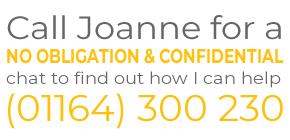After signing up for Hourglasses OATH—Older Age, Tomorrow’s Hope, I was prompted to write this month’s blog.
Through my work and contact with families, I hear stories of elderly loved ones being targeted by scammers or abused by carers or family members.
Over a million older people are abused each year.
Abuse of older persons can take various forms, each with its unique characteristics and implications. The main types of elder abuse include:
Types of Elder Abuse
- Physical Abuse: Inflicting physical pain or injury.
- Emotional or Psychological Abuse: Inflicting mental pain, distress, or anguish.
- Sexual Abuse: Non-consensual sexual contact of any kind.
- Financial or Material Exploitation: Illegal or improper use of an elder’s funds, property, or assets.
- Neglect: Failure to provide necessary care, assistance, or supervision.
- Self-Neglect: When an elder fails to care for themselves, leading to health or safety risks.
- Abandonment: Desertion by someone responsible for their care.
- Healthcare Fraud and Abuse: Unethical practices by healthcare providers.
Signs of Elder Abuse
- Unexplained injuries or frequent hospital visits.
- Changes in behaviour or emotional state, such as withdrawal or depression.
- Poor hygiene, weight loss, or untreated medical conditions.
- Unusual financial transactions or changes in financial status.
- Isolation from friends, family, or usual activities.
- Unsanitary living conditions or inadequate housing.
Prevention of Elder Abuse
For Families and Caregivers:
- Education and Awareness: Educate yourself and others about the signs of elder abuse and the ways to prevent it. Attend workshops or seminars on elder care and abuse prevention.
- Maintain Social Connections: Keep older people engaged in social activities and regular contact with family and friends. Encourage participation in community groups and activities.
- Caregiver Support: Provide support and resources for caregivers, including respite care, to prevent burnout. Encourage caregivers to seek help if they are feeling overwhelmed.
- Financial Safeguards: Monitor financial accounts for unusual transactions. Establish a durable power of attorney and ensure legal documents are in order. Be cautious of unsolicited offers and scams targeting older people.
- Regular Check-Ins: Visit elderly family members regularly and check in frequently. Observe their living conditions and physical and emotional well-being.
Acting
- If you suspect elder abuse, it’s essential to act:
- Report It: Contact local adult protective services, law enforcement, or a trusted professional to report your concerns.
- Seek Help: Reach out to organisations specialising in elder abuse prevention for guidance and support.
- Support: Offer emotional and practical support to the victim, helping them access necessary services and resources.
Preventing elder abuse requires a collective effort from individuals, families, communities, and institutions to ensure the safety and well-being of older adults.
If you would like to speak to me about care funding, sourcing good care or just for general advice about navigating adult health and social care, then here are my contact details:
T: 01164 3003 230
Email: enquiries@sunrisecareadvisers.co.uk
Book a FREE 30-minute call with me here
About Hourglass
Hourglass aims to raise awareness, advocate for policy changes, and create safer environments for older people. It is the only UK-wide charity dedicated to ending the harm, abuse, and exploitation of older people.
Join them in their mission to protect and support vulnerable older individuals.
https://www.wearehourglass.org/
If you would like to speak to me about care funding, sourcing good care or just for general advice about navigating adult health and social care, then here are my contact details:

Recent Posts
- Caring for Our Older Loved Ones During Winter: A Guide for Family Carers
- VAT Relief for Disabled People: A Simple Guide to What You Can Claim and How
- The Rising Cost of Care Homes in England: Who Pays? Check the Small Print
- Understanding Deprivation of Assets in Adult Social Care – There is NO Seven-Year Rule!
- Juggling Work and Caring for a Loved One? You’re Not Alone

